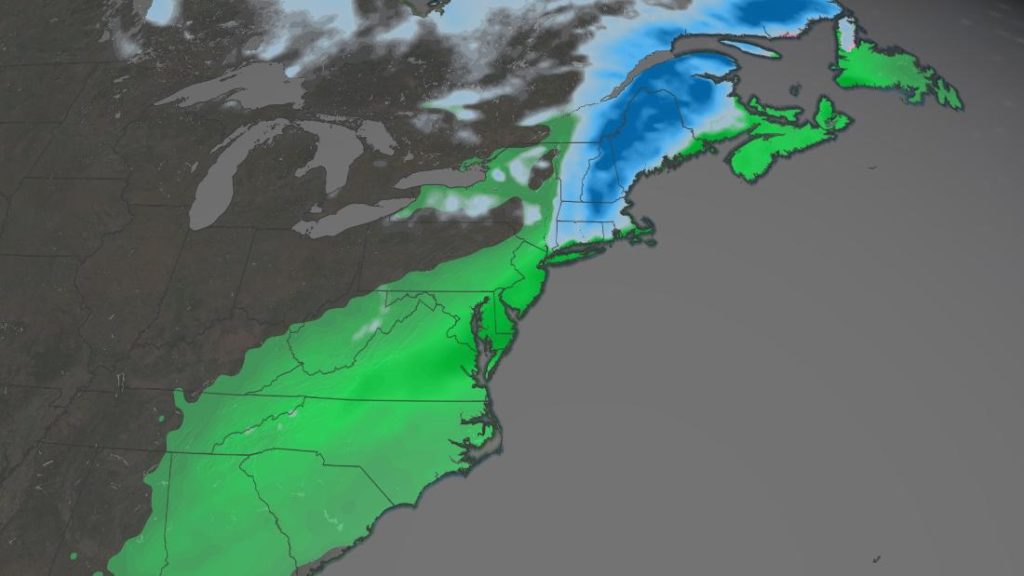There are also high wind warnings for coastal regions of Massachusetts, where wind gusts could reach 50 mph.
“As the system rapidly intensifies, it will also bring windy conditions, especially along the coast from the mid-Atlantic through Maine,” said CNN meteorologist Taylor Ward. “Expect winds to gust 30 to 40 mph Saturday, with some gusts perhaps even topping 50 mph in areas like Cape Cod.”
Those strong winds will also wreak havoc at sea.
Gale warnings are in effect along the coast from the Carolinas to Maine. A reduction in visibility, along with strong winds, are expected to cause hazardous seas, which could capsize or damage vessels.
This storm could intensify fast enough to become a “bomb cyclone,” a phenomenon characterized by a pressure drop of at least 24 millibars within 24 hours and increased precipitation and winds.
The heaviest rain will fall along the Eastern Seaboard, particularly from Richmond, Virginia, to Boston, where rainfall totals of 2 to 4 inches are expected.
The heaviest snow will likely fall between Worcester, Massachusetts and Caribou, Maine, where 8 to 12 inches is forecast. Over one foot of snow is possible for isolated locations, especially in Maine.
Travel is not advised
There is an increasing likelihood of heavy, wet snow for the region beginning Saturday and continuing through early Sunday morning.
Blowing snow could be an issue too, thanks to the gusty winds, which will reduce visibility to very low levels.
While most of this snow will be spread out over a 24-hour period, some heavy snow bands will produce several inches in just a few hours.
The type of snow that falls matters, too.
The greatest risk for power outages likely exists for central Massachusetts, southern New Hampshire, and Maine, where the snow will be heaviest and coming down at the highest rates.
It’s important to note that even if snow is not forecast for certain areas, residents should keep an eye on Saturday overnight temperatures. New York, New Jersey, Pennsylvania and Connecticut are all expecting temperatures below freezing Saturday overnight and Sunday morning, meaning that the rain left on the roadways will likely freeze, making driving conditions very dangerous.
CNN meteorologist Taylor Ward contributed to this story.
You may also like
-
UK coronavirus variant has been reported in 86 countries, WHO says
-
NASA technology can help save whale sharks says Australian marine biologist and ECOCEAN founder, Brad Norman
-
California Twentynine Palms: Explosives are missing from the nation’s largest Marine Corps base and an investigation is underway
-
Trump unhappy with his impeachment attorney’s performance, sources say
-
Lunar New Year 2021: Ushering in the Year of the Ox

